ESG & CSR Case Study: Powai Lake Cleanup and Waste Segregation Program by Earth5R
The Powai Lake which is considered a crucial ecosystem of Mumbai was suffering from significant water pollution due to improper waste disposal by visitors and illegal dumping from small firms and factories.
The lake is located in a special economic zone surrounded by high-density residential areas, colleges, and many influential companies, hence, it faced the challenge of proper waste management. So, it was evident that there was an immediate need for ecological restoration to ensure urban sustainability of the locality near Powai Lake.
In response to this, Earth5R, the renowned environmental NGO, had initiated a four year river cleanup program (2018–2023), involving the locals, nearby firms, NSS groups, and other NGOs to tackle this issue via weekly river cleaning, waste segregation, and recycling. This initiative is recognized as one of the Corporate Social Responsibility (CSR) and ESG Case Studies across sectors.
Earth5R has initiated this program to lower the water pollution levels and improve the Powai Lake environmental health while ensuring social and economic development of the local community. This environmental NGO has conducted awareness campaigns, partnered with corporations under their Corporate Social Responsibility (CSR) initiatives, and mobilized community engagement to ensure long term sustainability. Through consistent action, Earth5R has managed to restore the lake’s ecosystem,showcasing the power of collaborative river cleanup efforts.
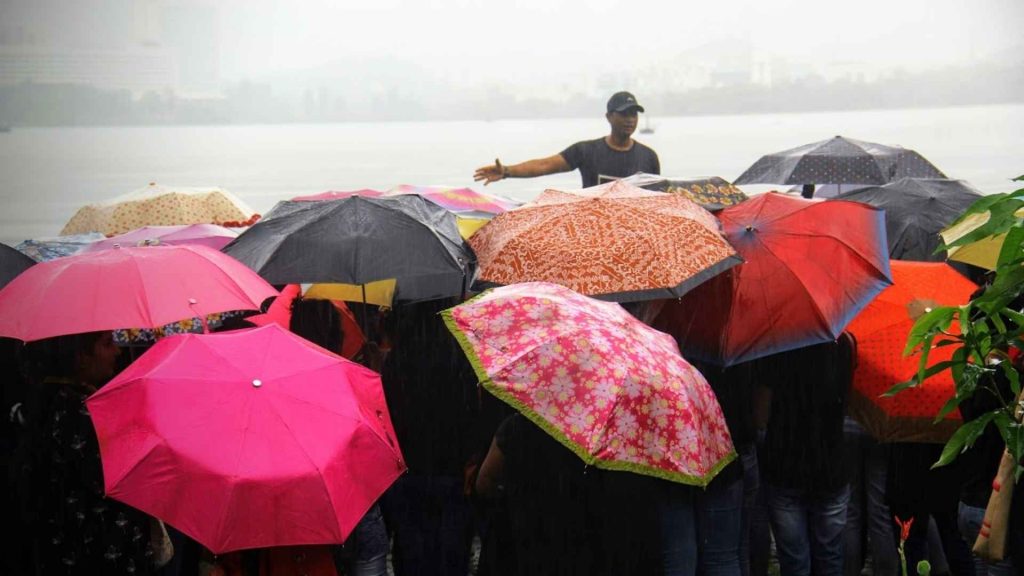
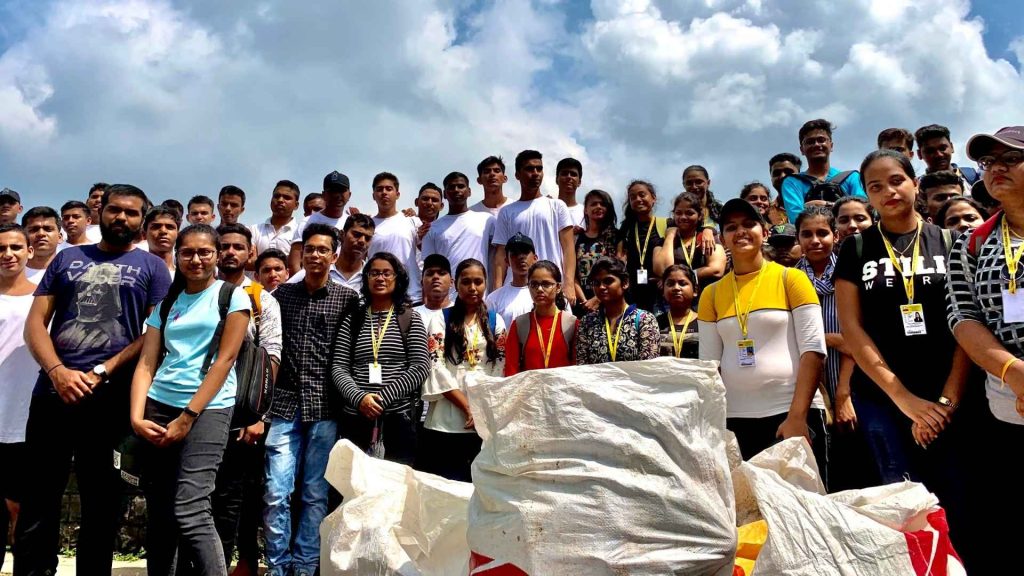
The Issue
Powai Lake in Mumbai gets around half a ton of waste every day, consisting of single-use plastics, metal cans, glass bottles, electronic waste, and even medical waste. This accumulation of waste not only causes water pollution but also negatively impacts the livelihood of the people dependent on it.
The challenge was to engage the local community, corporations to create environmental awareness. This was vital in addressing the issue of ecological restoration via a circular and sustainable approach to waste management.

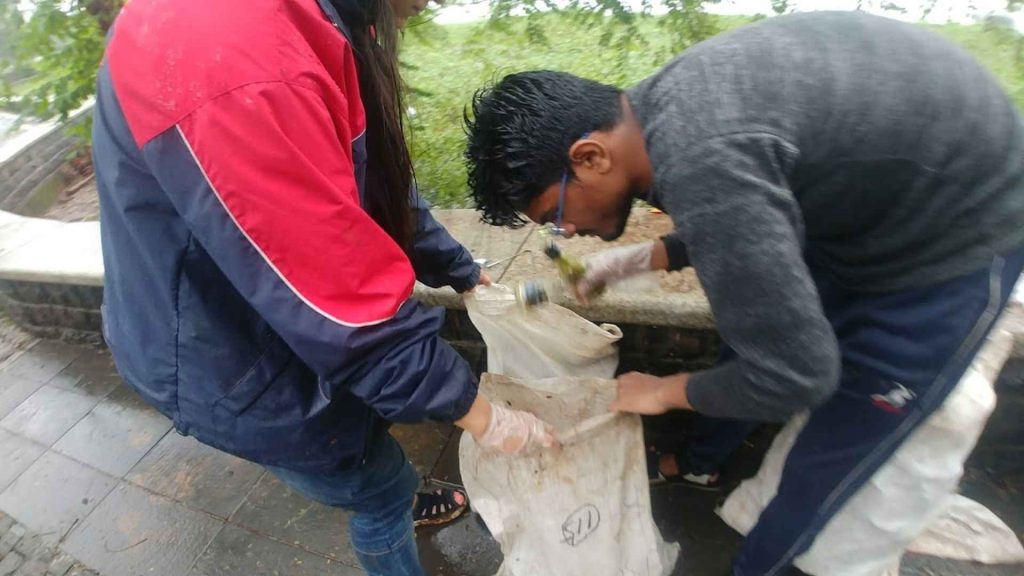
EARTH5R'S RIVER CLEANUP SOLUTION TO TACKLE POWAI LAKE POLLUTION
Earth5R’s comprehensive solution for creating awareness of Corporate Social Responsibility (CSR) and ensuring effective waste management of the Powai Lake involved four key components:
Weekly Cleanup Drives: Earth5R organized river cleanup activities every Sunday, where an average of 70 volunteers, including college students, corporate employees, and residents, gathered to clean the area around Powai Lake. The initiative by this environmental NGO, is a part of the ESG & CSR Case Study, which was continued for four years, totaling 208 Sundays. This project was carried out regardless of weather conditions, ensuring consistent waste removal to curb water pollution.
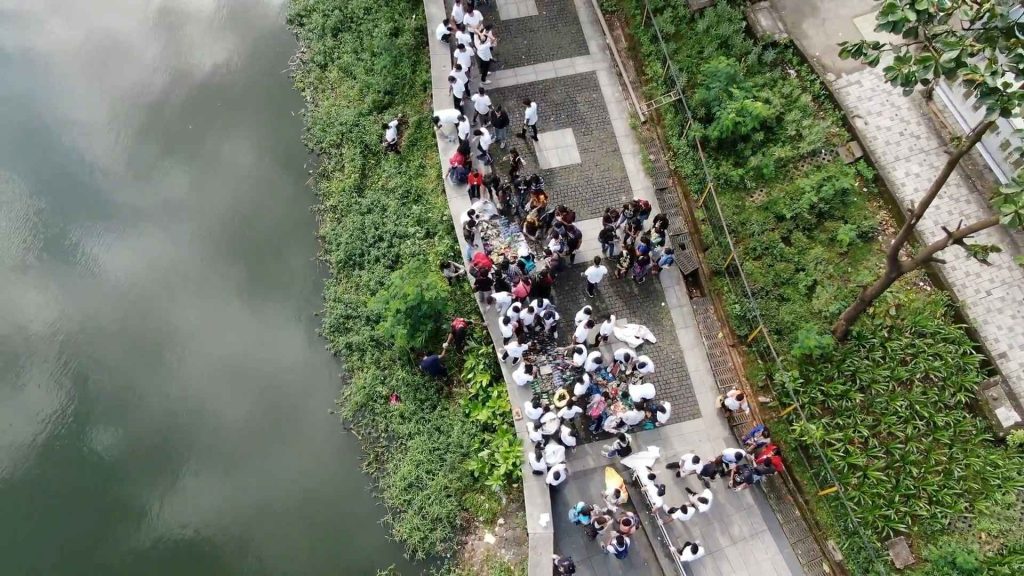
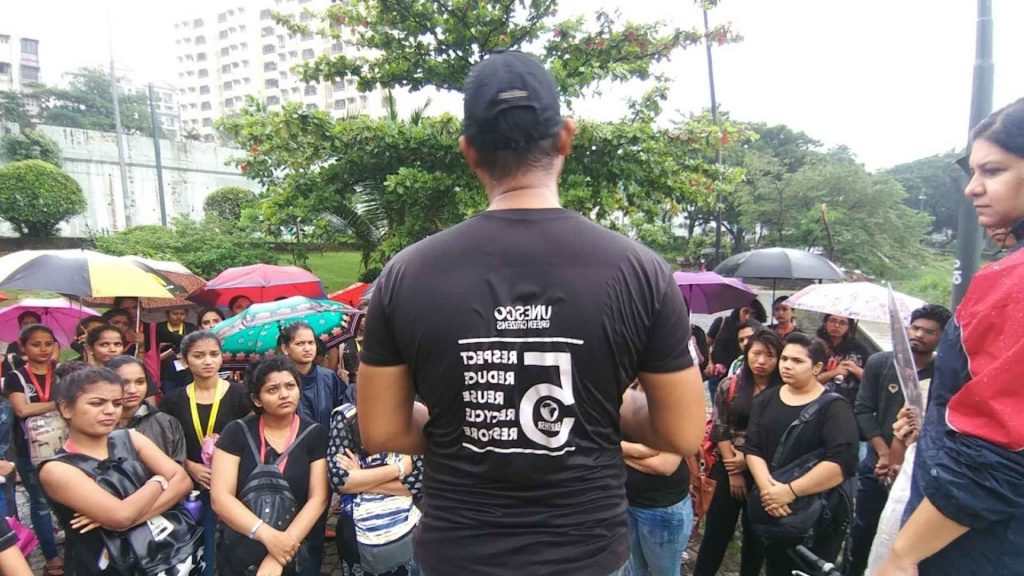
Partnership with Ragpickers: Environmental NGO, Earth5R collaborated with local ragpickers for the river cleanup initiative. They collected and recycled the waste which helped in reducing the negative impacts of water pollution on climate change. This initiative also opened up avenues for the locals to earn a livelihood. A rotational system was enforced to provide fair access to high-value waste such as metals and electronic items.
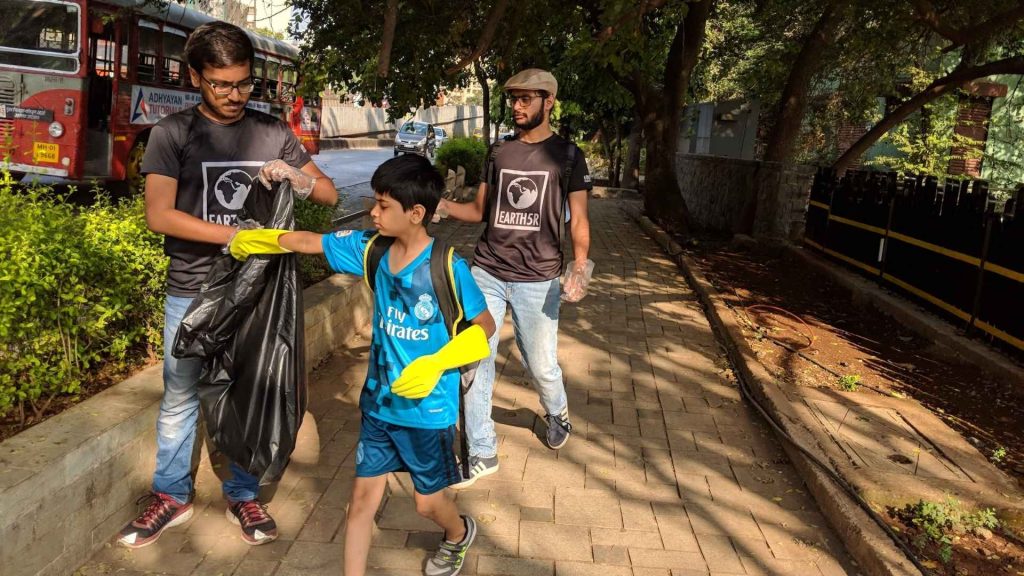
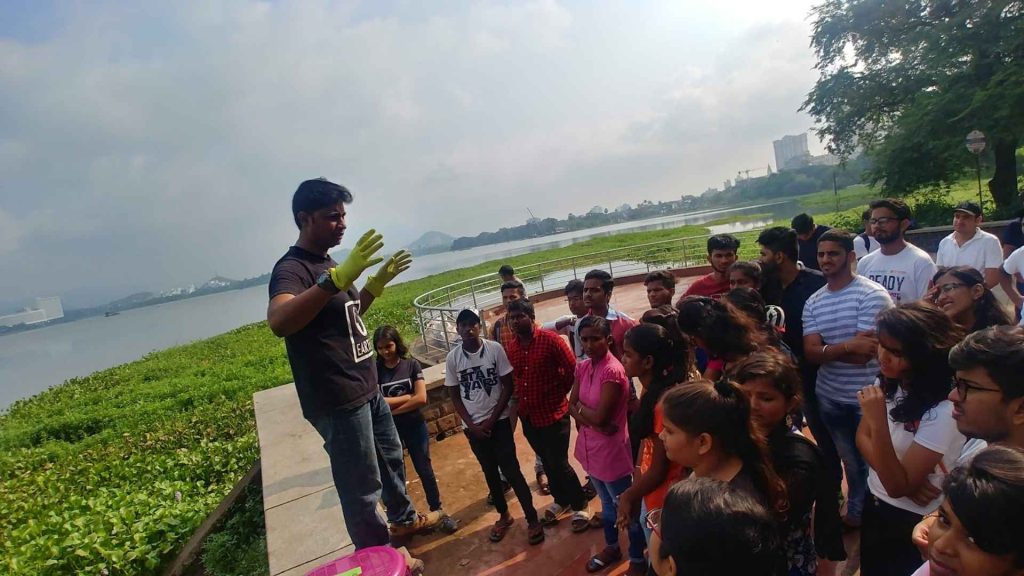
Awareness Campaigns and Behavioral Change: The environmental NGO, Earth5R used data collected from the waste segregation process to run environmental awareness campaigns across the local community, schools, and corporate offices. They were taught the importance of proper waste management and sustainability to reduce pollution which created a sense of Corporate Social Responsibility (CSR) among the participating firms. This approach brought in significant behavioral change among the locals as they became more mindful of their consumption and waste disposal habits.
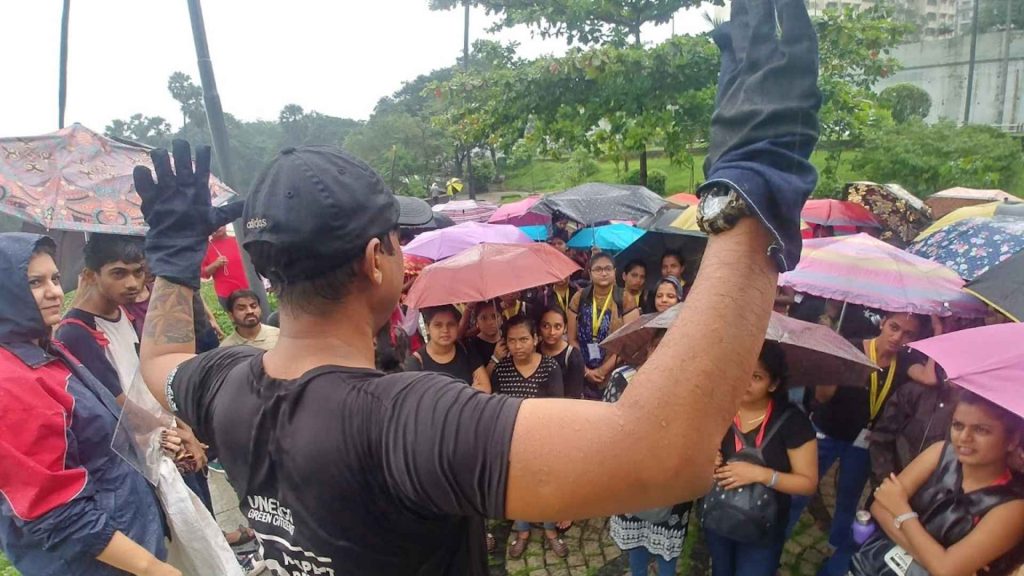
Outcomes Across All Sectors
Total Waste Collection:
For 4 years, a dedicated group of 70 Earth5R volunteers participated in weekly river cleanup drives every Sunday. Each of these participants collected an average of 4 kg of waste per session of this river cleaning initiative. Four years of continuous action spread across 52 weeks per year helped in removing a total of 58,240 kg (58.24 tonnes)of waste from the environment. This praiseworthy effort by the environmental NGO, Earth5r significantly reduced water pollution levels and reduced the waste entering Powai Lake. Thus, this noble initiative has been successful in protecting the lake’s ecosystem and marine life.
Calculation:
70 volunteers × 52 weeks × 4 years × 4 kg/volunteer = 58,240 kg (58.24 tonnes) of waste removed
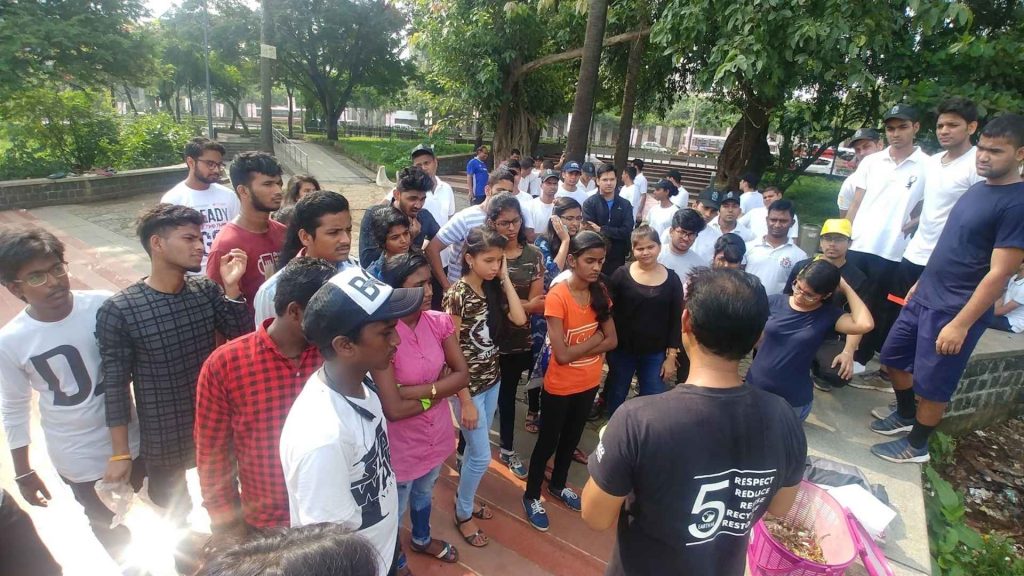
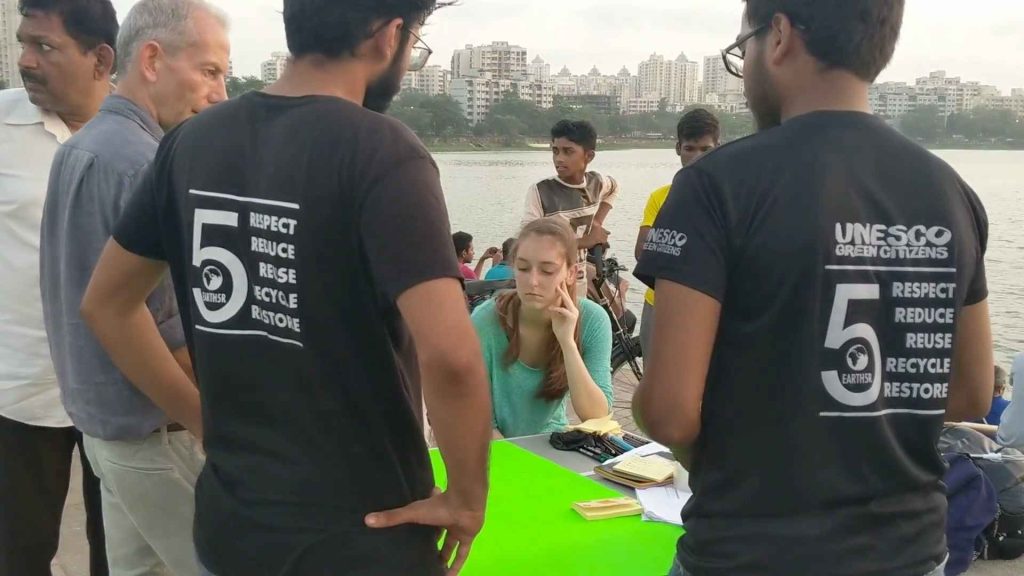
Volunteering Hours:
Every rivet cleanup drive required volunteers to dedicate at least two hours of their time every Sunday. Hence, over the course of four years, this commitment resulted in an impressive total of 29,120 work hours by the volunteers. This effort not only contributed to waste collection but also helped create a sense of environmental responsibility among locals. The participating firms were also able to foster a sense of Corporate Social Responsibility (CSR) and a culture of sustainability via this initiative.
Calculation:
70 volunteers × 52 weeks × 4 years × 2 hours = 29,120 volunteer hours contributed
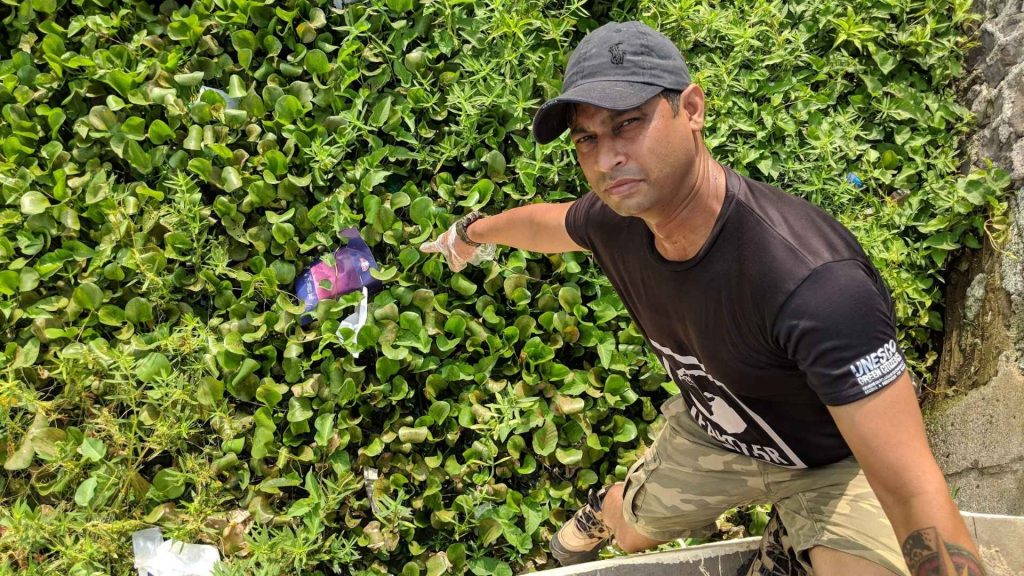
The Economic Impact:
The waste collected via these river cleanup drives also had tangible economic value, particularly for the local ragpickers. Among the total waste collected, the recyclable waste valued at ₹5 per kg, amounted to ₹291,200 (₹2.91 lakhs). This income directly benefited the local community near Powai Lake, enabling them to access a sustainable livelihood while actively promoting the benefits of a circular economy.
Calculation:
58,240 kg × ₹5/kg = ₹291,200 (₹2.91 lakhs) in economic benefits
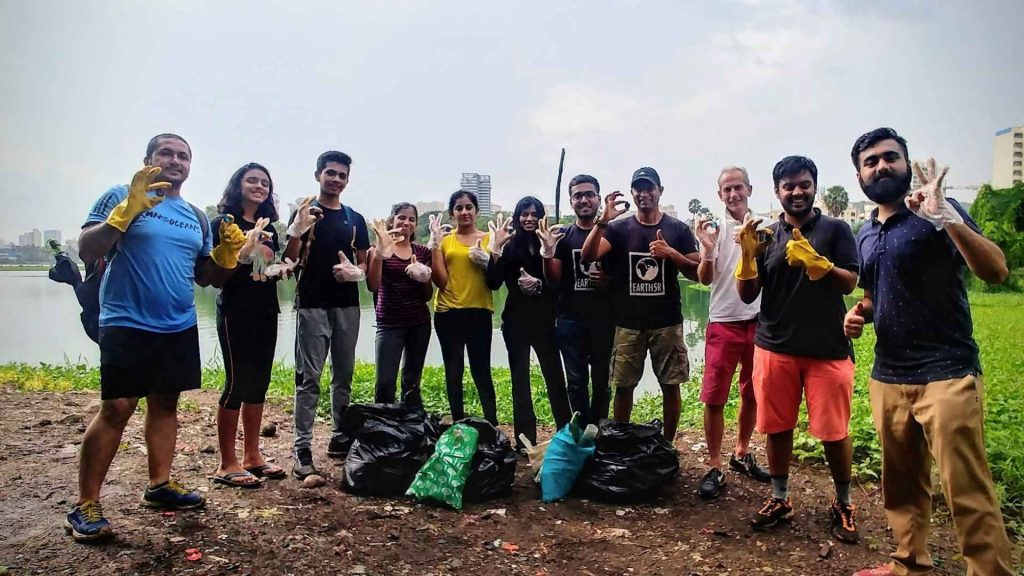
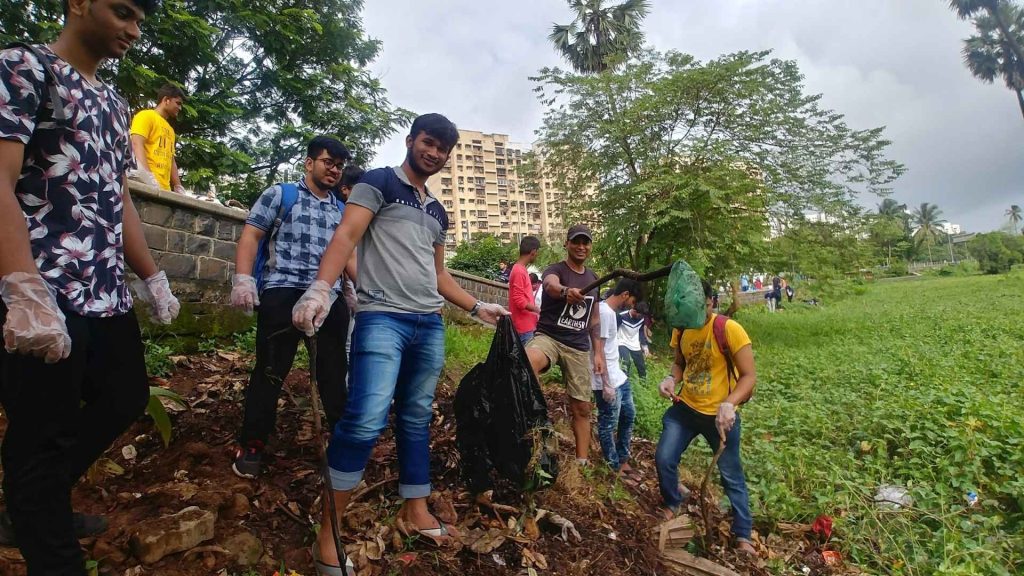
The Carbon Offset:
Another impressive impact of proper waste management and recycling is its role in inhibiting greenhouse gas emissions. On average, recycling one tonne of mixed waste offsets around 1.34 tonnes of carbon dioxide emissions that would have otherwise been generated via landfill decomposition. By preventing around 58.24 tonnes of waste from getting dumped in landfills, the project effectively offset 78.04 tonnes of carbon dioxide emissions, contributing to a lower impact on carbon footprint that could have otherwise worsened the condition of climate change.
Calculation:
58.24 tonnes × 1.34 tonnes of CO₂/tonne = 78.04 tonnes of CO₂ emissions prevented
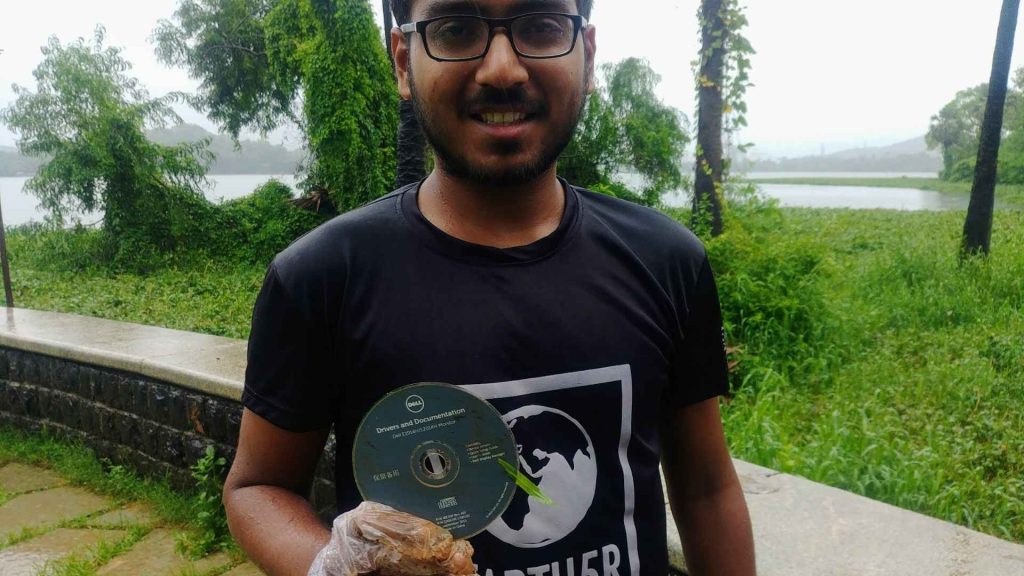
ESG KPIs (Environmental, Social, and Economic Impact)
The Environmental Impact:
- A total of 58.24 tonnes of waste was successfully removed from the ecosystem around Powai Lake. This reduced the pollution levels and enhanced biodiversity in this region via a circular economy approach.
- The initiative successfully offset 78.04 tonnes of Carbon dioxide emissions which has directly helped in reducing greenhouse gas levels and improving urban sustainability of the region.
- By preventing waste accumulation, this project by the environmental NGO in Mumbai has significantly improved air quality while reducing land and water pollution. This initiative also ensured a healthier ecosystem for local wildlife and residents.
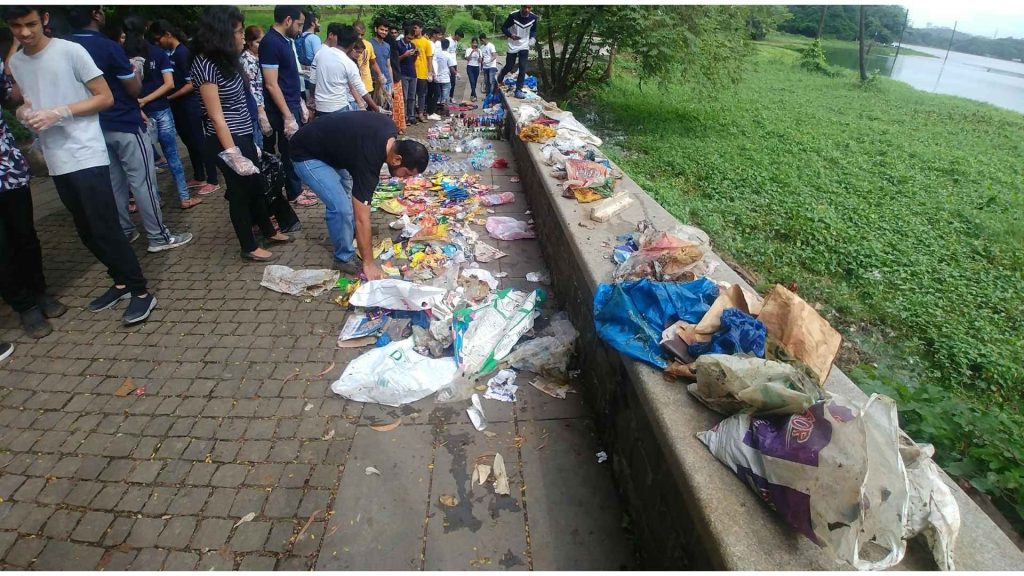
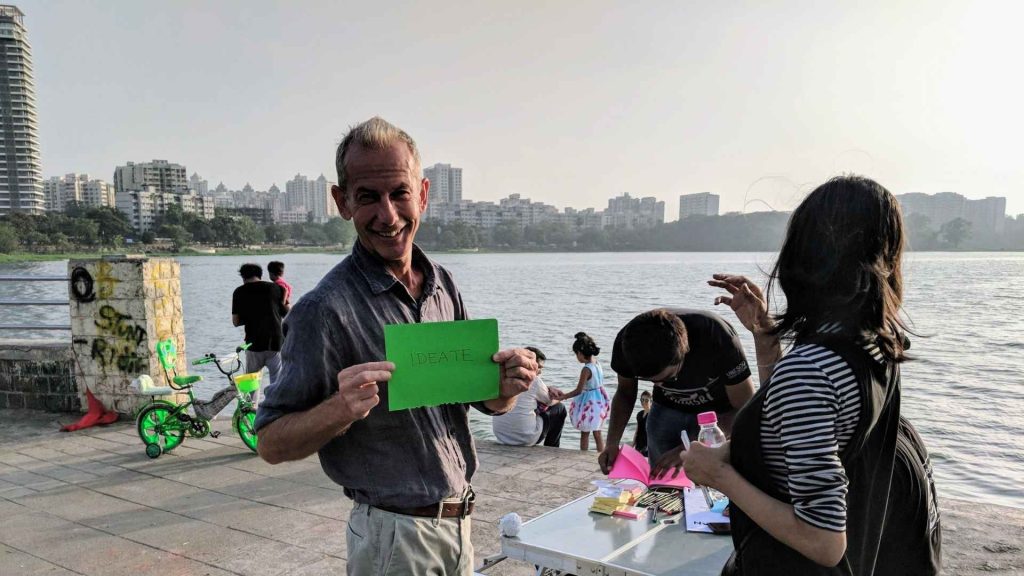
The Social Impact:
- Volunteers of this river cleanup project collectively contributed 29,120 hours to the initiative, reflecting strong citizen participation and community-based environmental action.
- This program provided fair access to high-value recyclables for local ragpickers. This helped them in generating a sustainable livelihood while promoting social inclusion.
- The project encouraged employee engagement in environmental issues by firms while fostering a sense of ownership among volunteers.
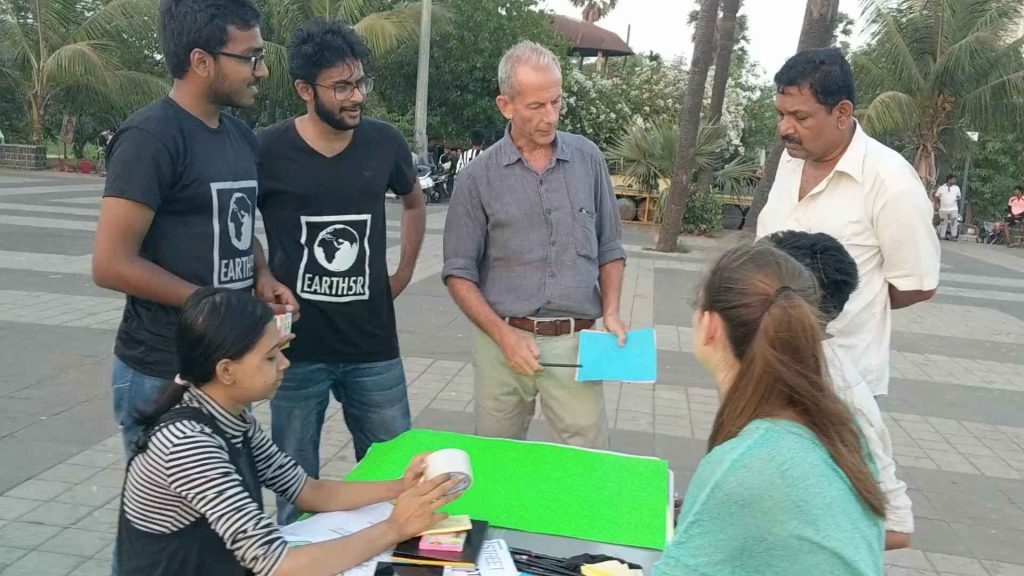
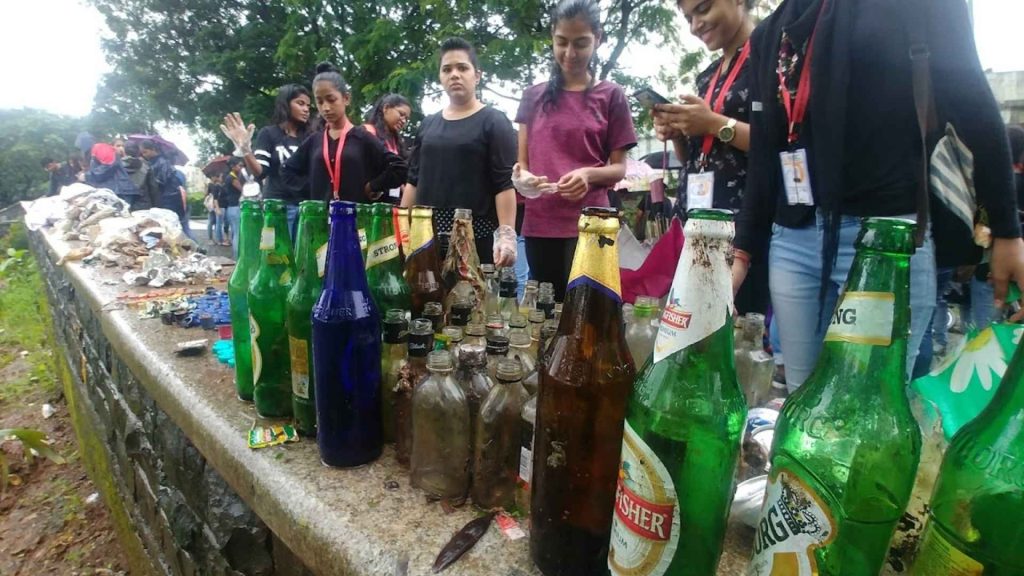
The Economic Impact:
- The recycling and waste recovery process involved in this river cleanup initiative generated ₹2.91 lakhs. This helped in supporting local economies and contributed towards the development of a more efficient circular economy.
- Environmental NGO Earth5R converted waste into a valuable resource via this initiative. This demonstrated an effective model for economic sustainability in waste management.
- The economic impact of this project is largely positive. The benefits extended beyond monetary value, since the initiative resulted in cost savings by the municipal waste management system. This river cleaning process further harbored a sense of Corporate Social Responsibility (CSR) among the participating companies near Powai Lake.
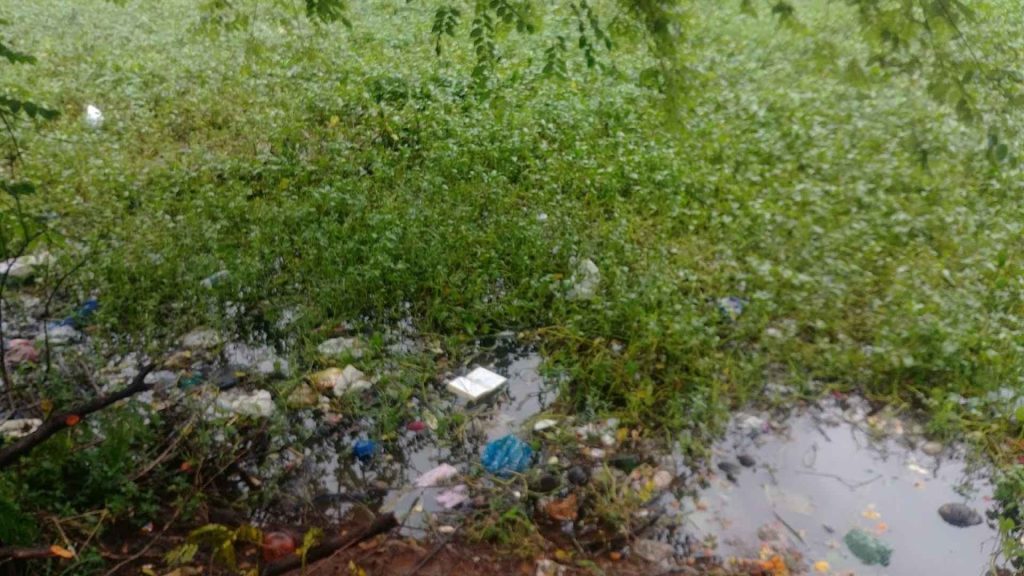

The Behavioral Change:
- The efficient nature of this initiative resulted in major behavioral shifts among citizens of Mumbai, particularly in waste disposal habits and awareness about sustainability.
- Proper education, training, data-driven awareness campaigns and workshops reduced littering and hence curbed waste accumulation around Powai Lake.
- This initiative created a ripple effect that prompted other areas of Mumbai to implement similar community-based river cleanup strategies and integrate sustainable habits like recycling into their daily lives.
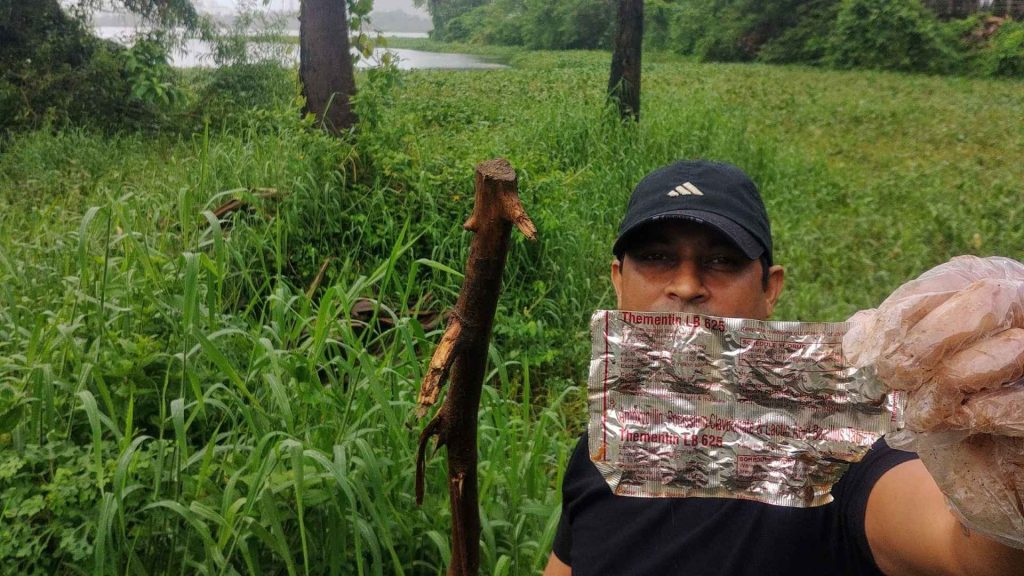
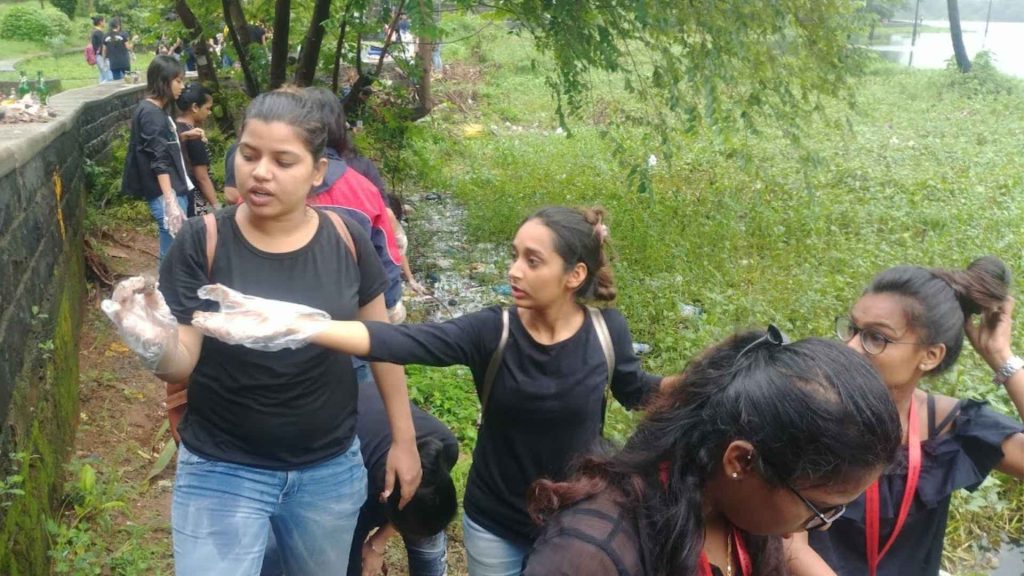
Successful Community Engagement:
- The project by the Environmental NGO Earth5R effectively mobilized multiple stakeholders, including local citizens, corporate volunteers and NSS organizations from nearby universities. This fostered a strong sense of Corporate Social Responsibility (CSR) among participating firms and established a structured Circular Economy around this region.
- The cross-sector collaboration of this program ensured that this environmental action was not just a one-time action but rather a sustainable movement.
- The widespread citizen participation and employee engagement by firms ensured continued river cleanup efforts and greater communal ownership of ecological conservation.
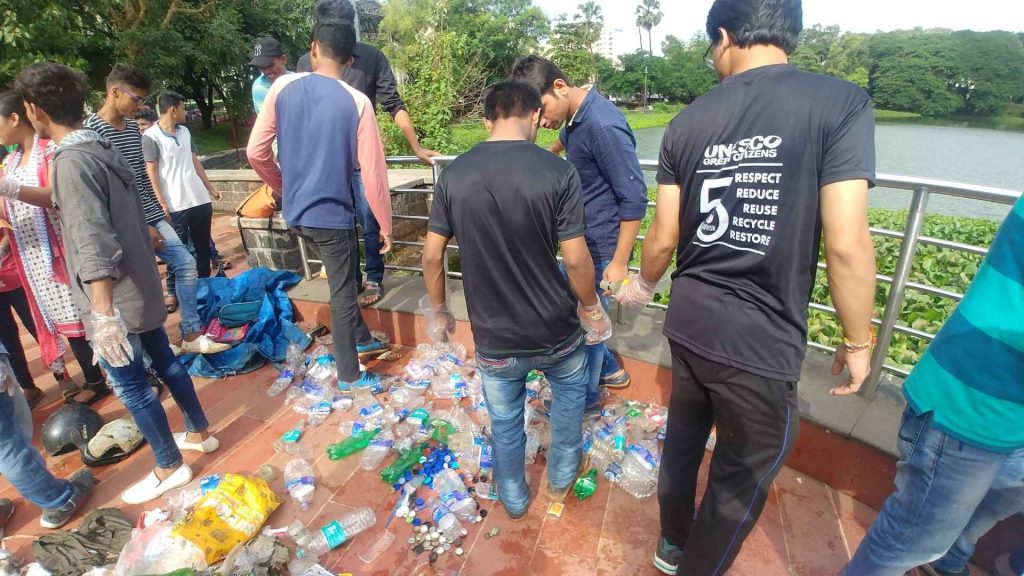
Key Lessons from the Powai Lake Cleanup Initiative for All Sectors
All About Community Engagement and Sustainable Change
The backbone of this program has been the strength of citizen-led action. A dedicated team of 70 volunteers participated weekly, committing a total of 29,120 volunteer hours over 4 years, leading to the removal of around 58.24 tonnes of waste.
This impressive scale of citizen participation highlights how community-driven initiatives can result in environmental change without incurring heavy financial costs.
The initiative successfully mobilized the local population, NGOs corporate employees, and NSS student groups, showcasing that collaborative efforts lead to noticeable impact.
Data shows that consistent citizen efforts towards sustainable development and climate action boosts the likelihood of behavioral change by 65%. This further reinforces the long-term effectiveness of these environmental NGO led interventions.
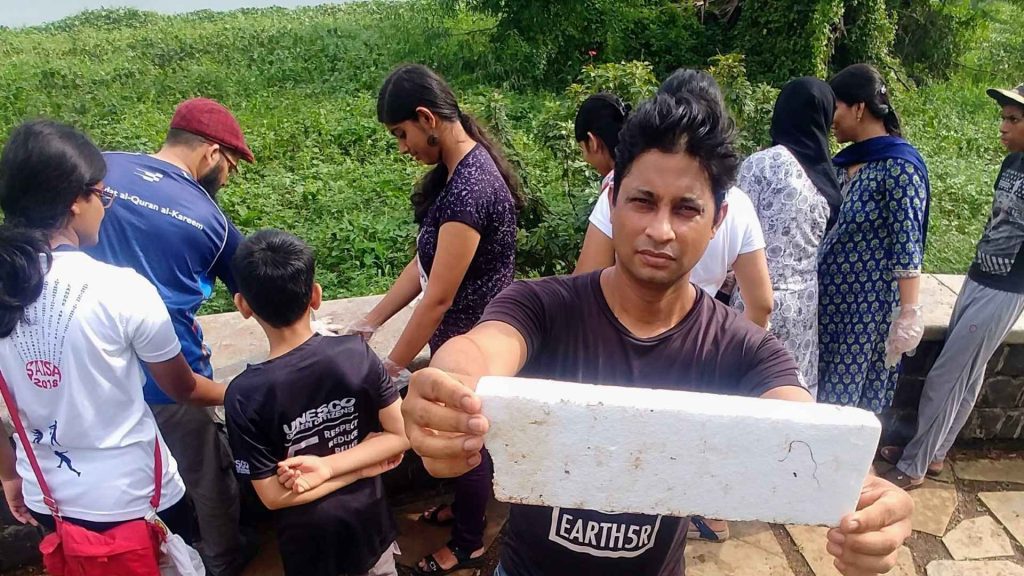

Economic Empowerment and Circular Economy Benefits for All Sectors
One of the major achievements of the Powai Lake cleanup project has been its ability to create economic value while tackling environmental challenges.
The recycling of collected waste generated Rs. 2.91 lakh (Rs. 291,200). This has directly benefited around 50+ local rag pickers who are dependent on waste collection for their livelihood.
By preventing 58.24 tonnes of waste from reaching landfills, this program contributed to reducing waste processing costs for the municipality near Powai Lake, which incurs an estimated cost of Rs.700 per tonne on waste disposal. Thus, the local municipality saved approximately Rs. 40.76 lakh (₹4.07 million) in potential landfill costs over the course of four years.
This river cleaning project also promoted financial inclusion by integrating local waste collectors into the formal recycling economy, ensuring fair wages, improved work conditions, and skill development for deprived communities.
This adoption of circular economy principles proved that waste could become a valuable resource, aligning with India’s goal of achieving 50% waste recovery rates by 2030.
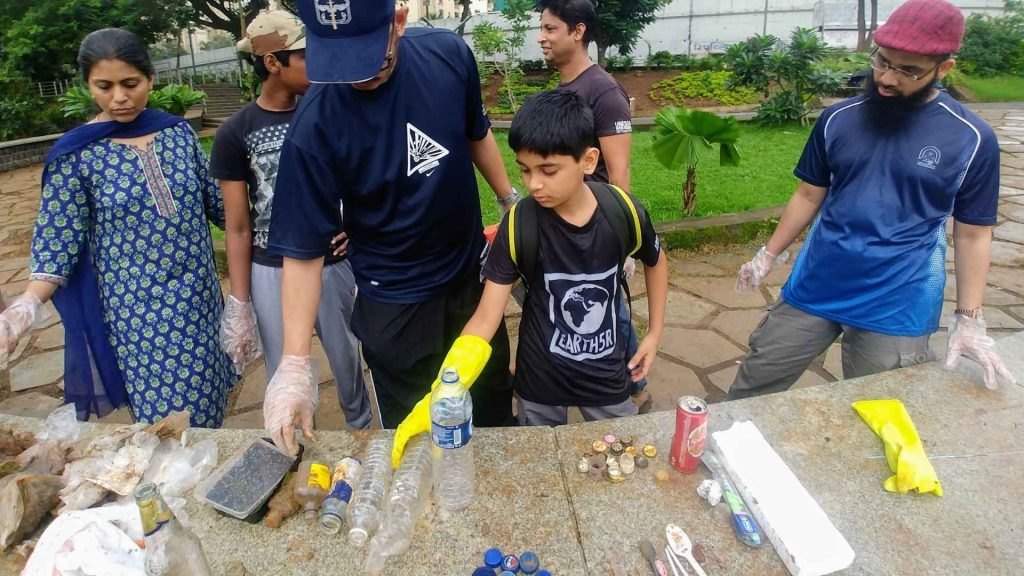
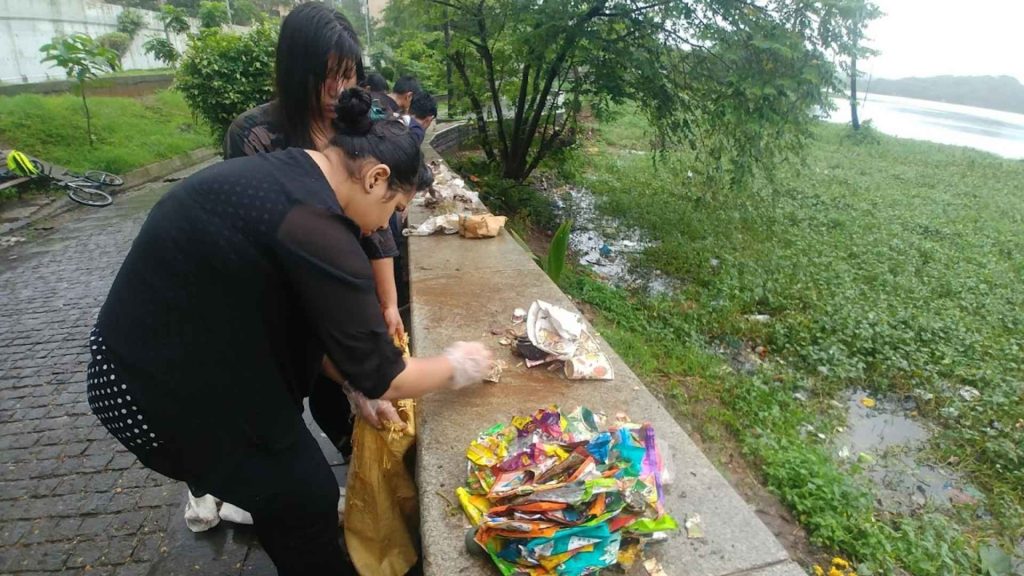
Behavioral Change through Continuous Awareness Across All Sectors
Sustained education, training, workshop and awareness campaigns played a crucial role in shifting waste disposal habits around Powai Lake.
50,000+ residents were influenced through 208 educational events especially designed to create awareness and encourage participation. This led to a greater sense of corporate social responsibility (CSR) among nearby industries and promoted action-based behavioral change.
The result was a 35% reduction in waste disposal around Powai Lake. This indicates a noticeable shift in citizen responsibility for waste disposal.
Much research suggests that habitual engagement in ecological restoration initiatives for over 12 months results in a 45% increase in long-term environment friendly behavior, highlighting the significance of continued awareness efforts in developing good community habits.
This campaign model by Environmental NGO Earth5R is replicable and scalable for cities globally, particularly in high-density urban regions where improper waste management is a major challenge.
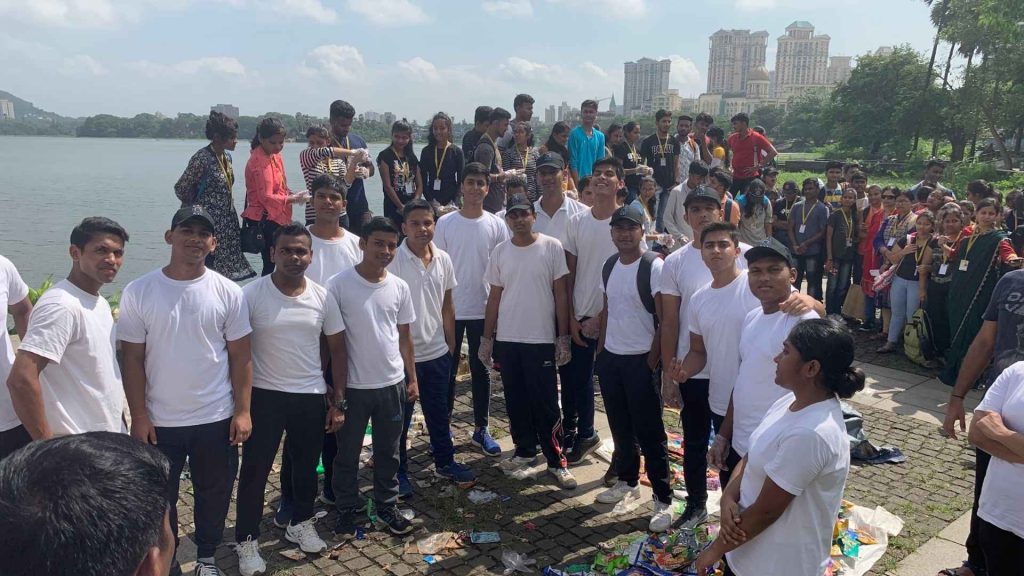
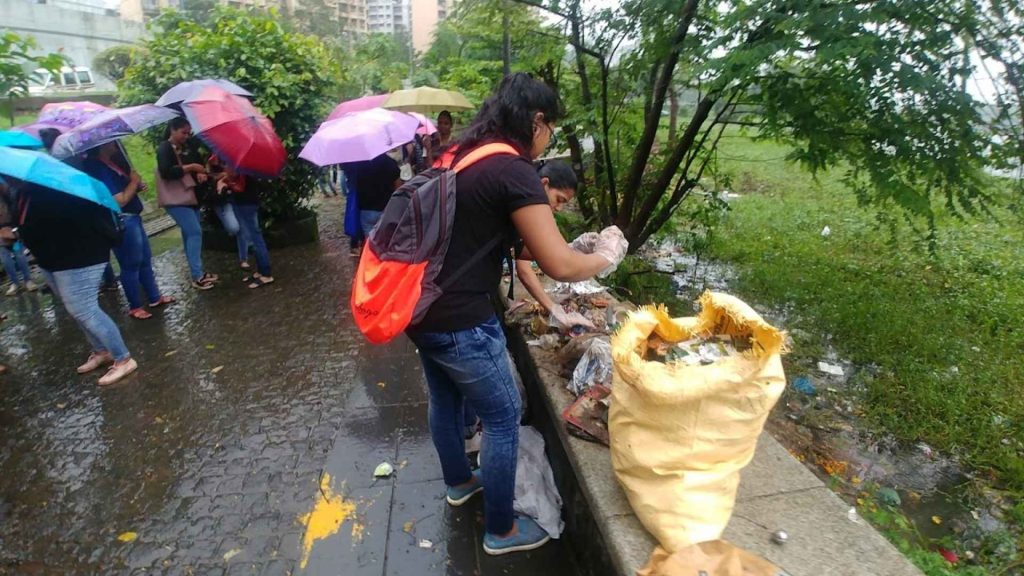
Technology as a Driver for Scalable Solutions Across All Sectors
Earth5R used technology and real-time data tracking to enhance the transparency, efficiency, and scalability of the project.
The environmental NGO Earth5R platform tracked waste collection progress, volunteer participation, and impact metrics, allowing for data-backed decision-making and effective resource allocation.
With a world-wide user base of 70,000 active users and 126,000 recorded sustainability actions, the platform proved how tech-driven solutions can help create scalable waste management models applicable in both urban and rural settings globally.
Future development, such as blockchain-enabled waste traceability and AI-driven waste segregation can further optimize logistics, enhance accountability, and create verifiable impact data for ESG reporting.
Although 90% of sustainability initiatives fail due to a lack of proper monitoring, Earth5R’s technology-driven approach offers a blueprint for ensuring measurable and lasting impact.
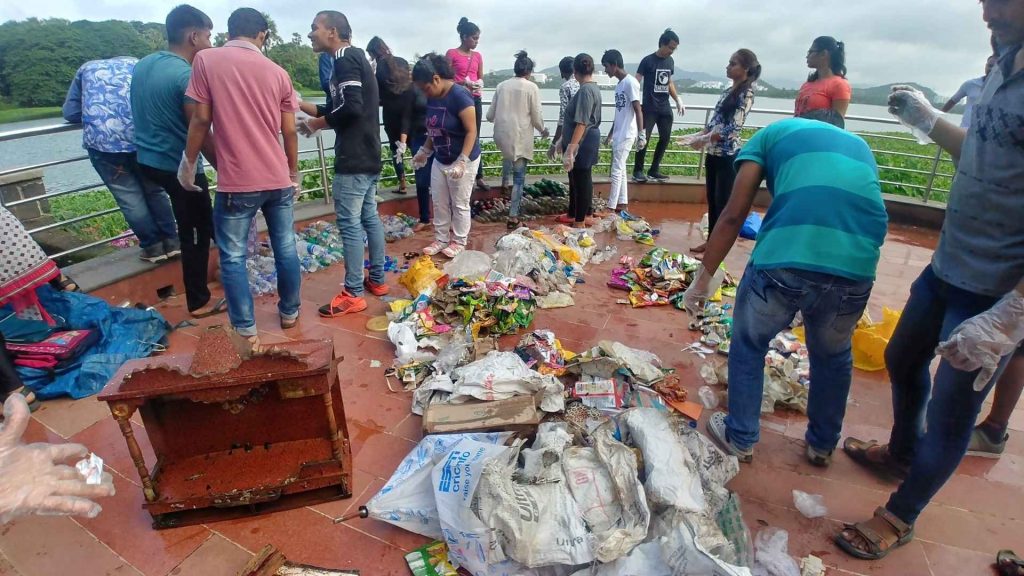
Global Impact Potential of Earth5R’s Model Across All Sectors
Scalable Carbon Offset through Recycling Across All Sectors.
- The recycling efforts at Powai Lake successfully offset 78.04 tonnes of Carbon Dioxide emissions which is equivalent to preventing the burning of around 33,000 liters of diesel fuel.
- Scaling this model to 100 cities could offset 7,800 tonnes of Carbon Dioxide annually.
- This significantly contributes to global carbon reduction goals.
- The program aligns with India’s target of achieving net-zero emissions by 2070 and helps corporate ESG strategies aiming for carbon neutrality by 2030-2040.
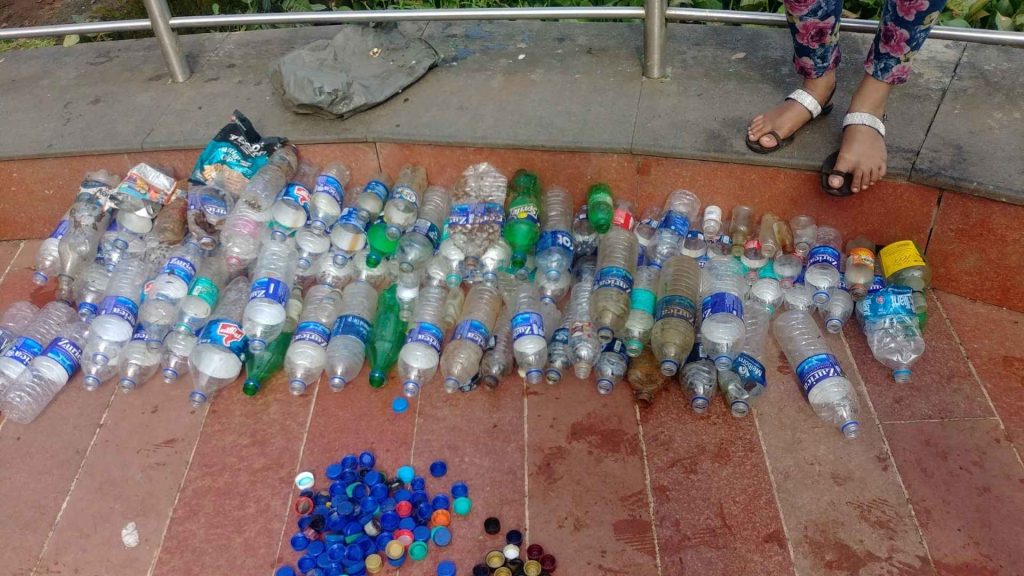
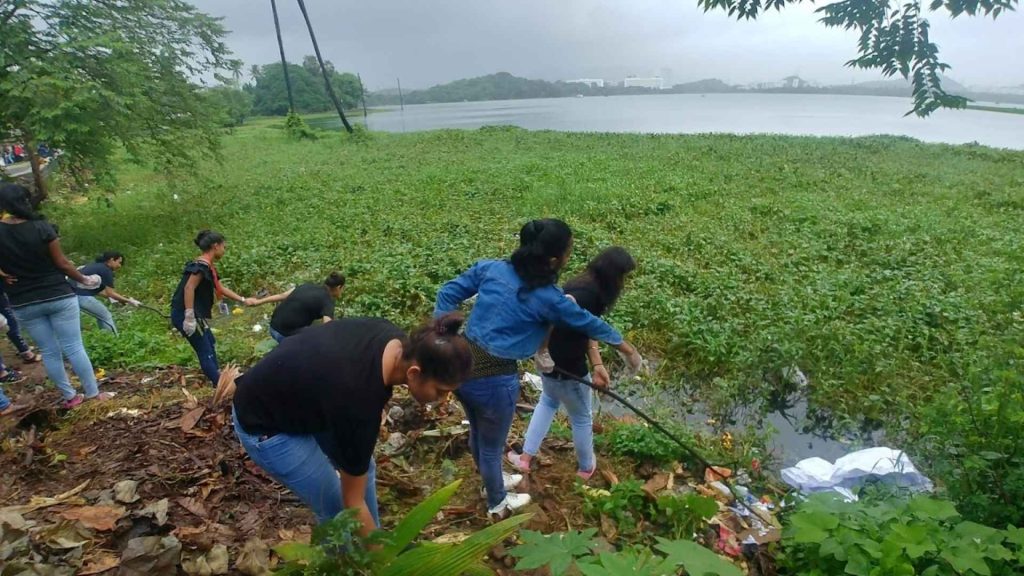
Volunteer Mobilization for Community-Led Conservation
- Earth5R has mobilized 60,000 volunteers across multiple river cleaning projects, showcasing the strength of community-led climate action.
- With a target to reach one million volunteers by 2030, this model has the potential to contribute over five million hours for environmental conservation.
- These types of large-scale volunteer-driven models are known to accelerate environmental impact by 300% compared to government-led programs alone, making this an effective strategy for global replication.
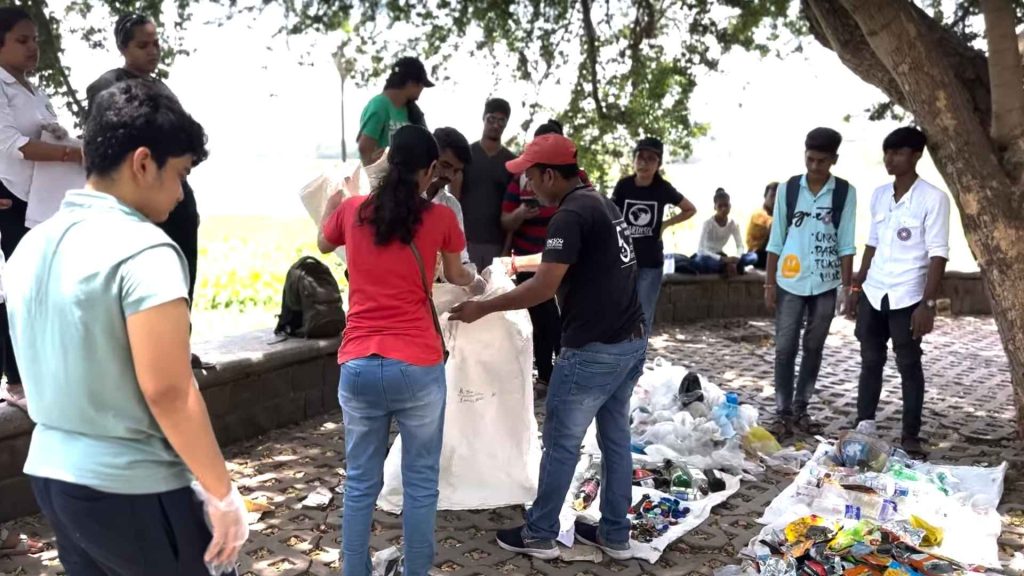
Broad Educational Reach for Behavioral Change
- Earth5R aims to train, educate and engage around two billion people by 2030, using a blend of digital outreach, school programs, and corporate sustainability courses.
- A 25% reduction in waste dumping behaviors is targeted by each participating region which generally results in tangible improvements in waste disposal practices across highly populated urban areas.
- Research shows that public training in environmental courses can reduce per capita waste production by 20%, proving that spreading knowledge is the key driver for systemic change.
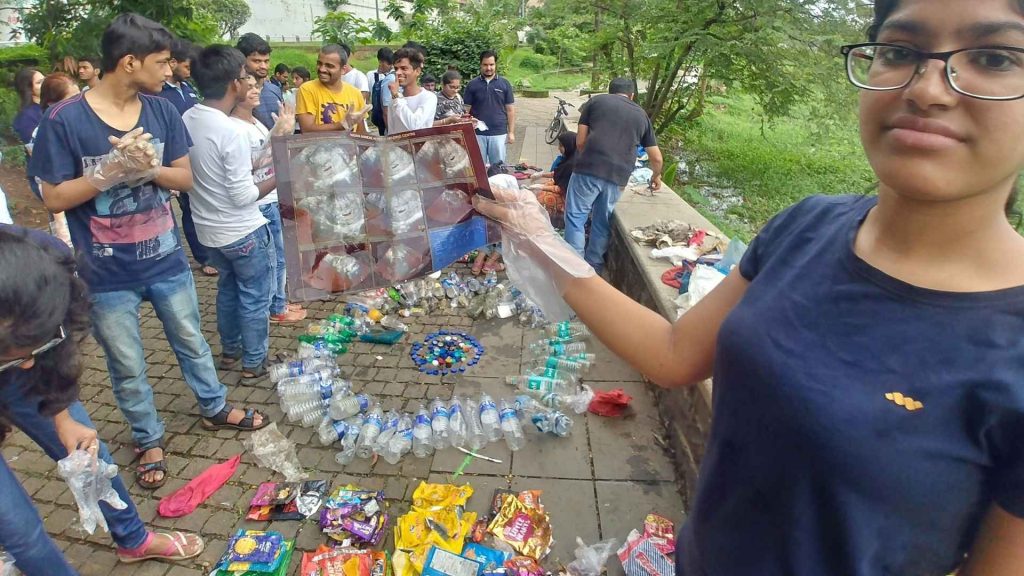
Economic Impact of Expanding the Circular Economy
- The target is to Scale this initiative to 1,000 cities and generate an estimated Rs. 290 crores (Rs.2.9 billion) annually from recycled waste. This will support local economies and reduce landfill dependency.
- A gradual shift towards a national circular economy model can result in a 30% reduction of municipal solid waste generation. This can potentially improve urban health and livelihood.
- The use of blockchain-led waste tracking can potentially enhance transparency in waste transactions which can prevent corruption and ensure fair economic distribution among waste collectors.

Future Plans: Expanding the Powai Lake Model Nationwide
Given the major success of this initiative, Earth5R is actively working toward introducing the Powai Lake model to more urban areas.
- The next phase involves collaborations with city municipalities, educational institutions and corporate ESG teams to introduce impact-driven cleanup programs in other areas.
- Integration of IoT-based waste monitoring systems, blockchain for traceability, and AI-driven waste analytics can enhance operational efficiency while maximizing environmental benefits.
- Future extension of this initiative will also emphasize waste-to-value solutions, such as upcycling materials into environment-friendly output that can strengthen the local circular economy.
- Earth5R will continue harboring multi-stakeholder partnership to ensure that businesses, governments and citizens, align their efforts to achieve a waste-free, carbon-neutral future.
With a global sustainability target of engaging two billion people by 2030, Earth5R’s community-driven environmental model is more than just a localized success story, it is a scalable plan for effective change worldwide.
Earth5R’s Powai Lake cleanup initiative is not just a waste removal project, rather it is a case study in economic empowerment, environmental leadership, and technological innovation. With scalable strategies, measurable impact, and community-powered action, this innovative model is creating the path for a sustainable future, where every business, institution, and citizen, play a role in restoring ecological balance.

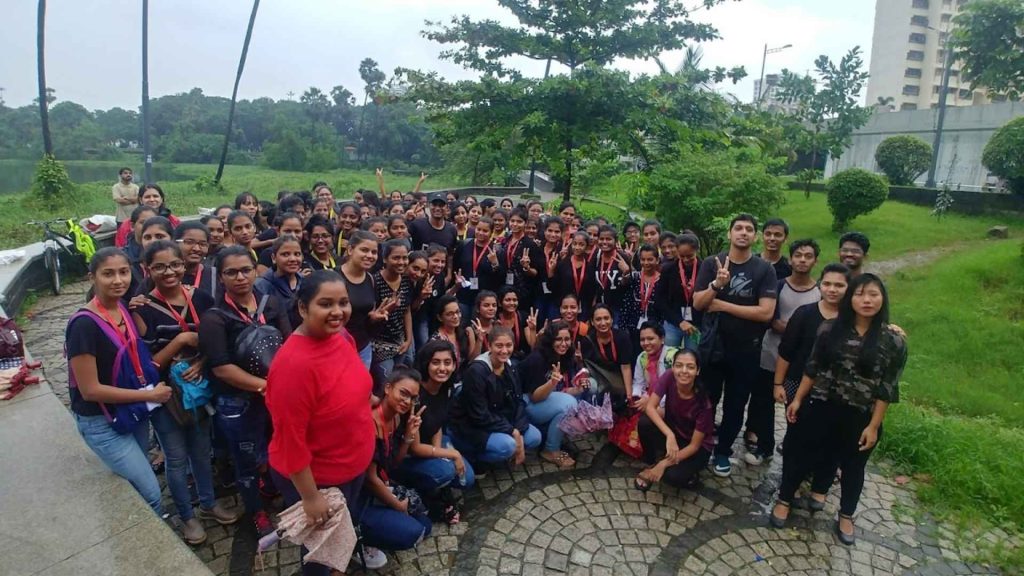
EARTH5R’S INTERVENTION & SOLUTION
- Weekly Cleanup Program: Earth5R volunteers began cleaning the banks of the Mula Mutha River every Sunday to ensure consistent waste removal. Every week, 30-40 volunteers took part in this river cleaning initiative, and each volunteer collected around 9 kg of waste during the 2-hour sessions.
- Community and Cultural Engagement: After each cleanup, volunteers were engaged in activities like playing football. This was inspired by tribal communities that generally blend cultural practices with environmental activities. These practices helped in creating a strong emotional bond with the space, encouraging volunteers to take ownership of the environment.
- Corporate and NGO Involvement: As the program became more popular, local NGOs and corporate firms such as Hexaware joined the project, adding hundreds of willing participants to the cause. Gradually the project gained visibility in the media and was even highlighted by UNESCO as part of its Green Citizen initiative. This led to widespread adoption of the river cleanup model by the community.
- Sustained Impact: This river cleaning initiative ran every Sunday for 6 years with the help of local volunteers and organizations who ensured that the riverbanks remained clean and well-maintained even after Earth5R reduced its direct involvement.
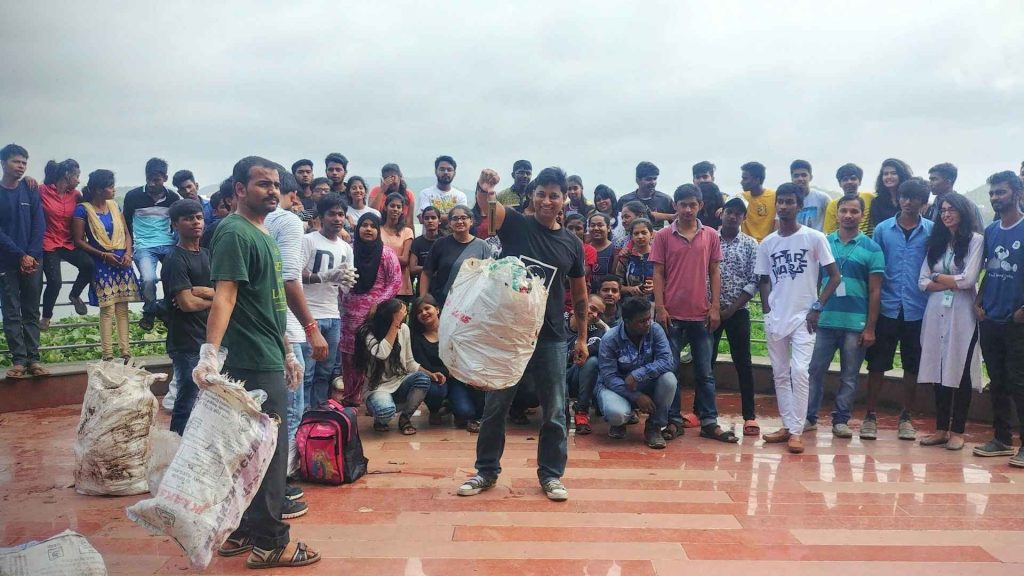
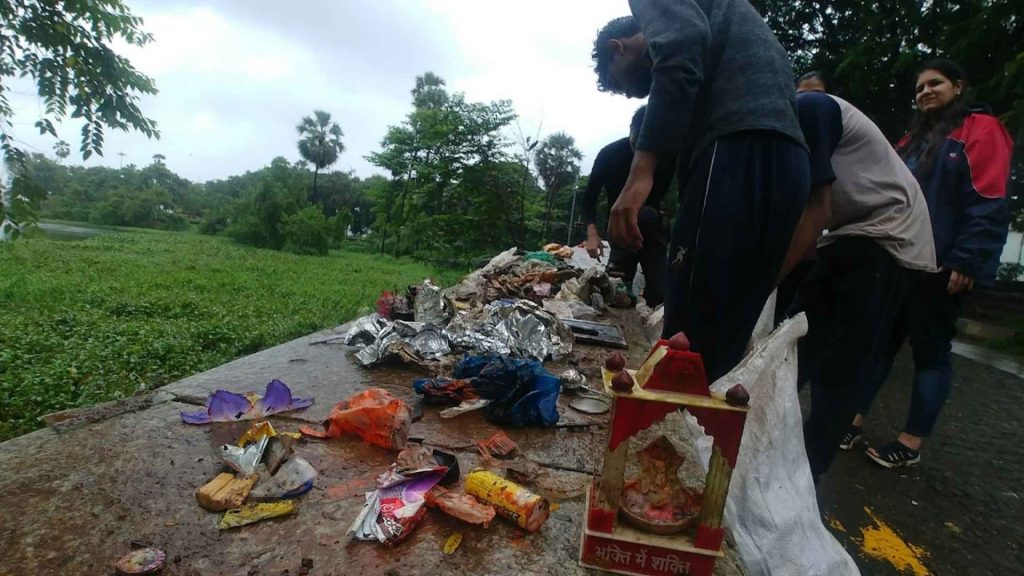
OUTCOMES: MEASURABLE IMPACT OF THE MULA MUTHA RIVER CLEANUP INITIATIVE
Total Waste Collection
Over the 6 years, an enthusiastic group of 30 to 40 volunteers dedicatedly participated in the river cleaning initiatives along the Mula Mutha River. They collected an average of nine kilograms of waste per person each Sunday. This sustained commitment resulted in the removal of 112,320 kg (112.32 tonnes) of waste from around the riverbanks. The collected waste material primarily consisted of discarded textiles, plastics, construction debris, metal scraps and electronic waste, which otherwise would have continued accumulating, and polluting the river’s ecosystem.
Calculation:
40 volunteers × 9 kg × 52 Sundays/year × 6 years = 112,320 kg (112.32 tonnes) of waste removed
Estimated Carbon Offset
The collected waste was properly recycled instead of being sent to landfills which significantly helped in reducing greenhouse gas emissions. On average, recycling one tonne of mixed waste offsets 1.34 tonnes of Carbon Dioxide emissions that would have been generated due to decomposition in landfills. Over the course of 6 years, the river cleaning project successfully prevented the release of 150.52 tonnes of Carbon Dioxide emissions, contributing to improved air quality and climate mitigation actions.
Calculation:
112.32 tonnes × 1.34 tonnes of CO₂/tonne = 150.52 tonnes of CO₂ emissions avoided
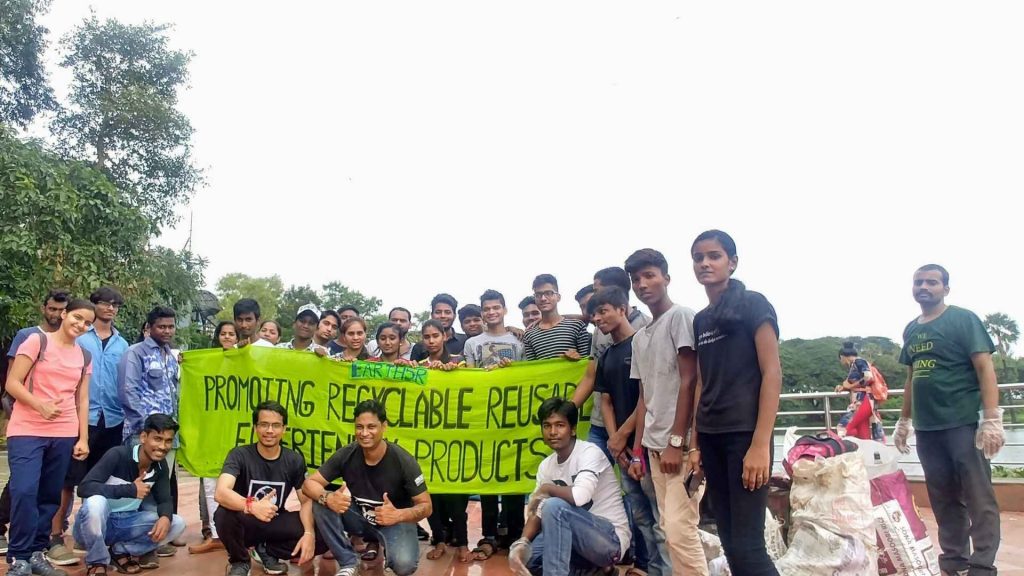
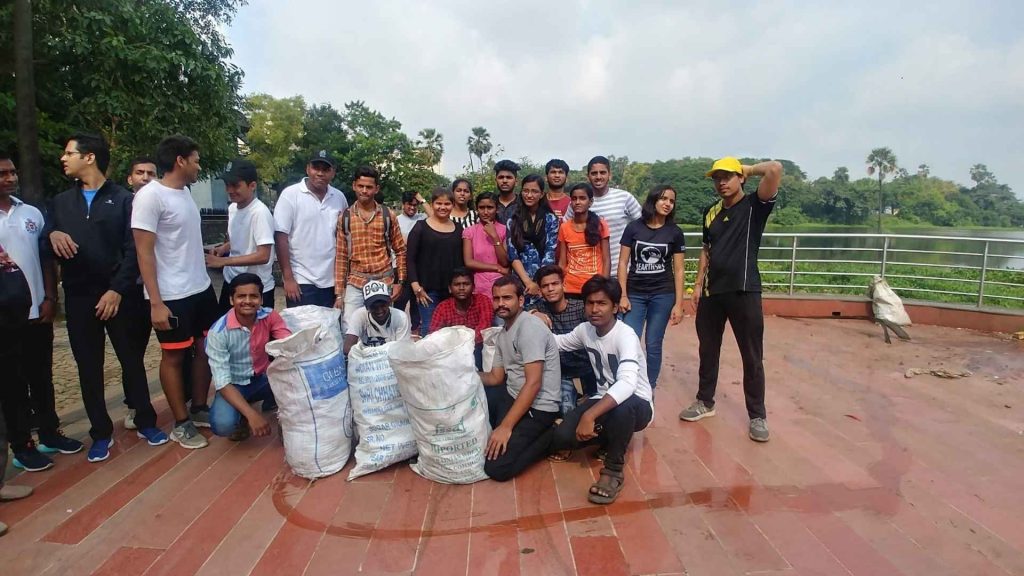
Total Waste Collection
Over the 6 years, an enthusiastic group of 30 to 40 volunteers dedicatedly participated in the river cleaning initiatives along the Mula Mutha River. They collected an average of nine kilograms of waste per person each Sunday. This sustained commitment resulted in the removal of 112,320 kg (112.32 tonnes) of waste from around the riverbanks. The collected waste material primarily consisted of discarded textiles, plastics, construction debris, metal scraps and electronic waste, which otherwise would have continued accumulating, and polluting the river’s ecosystem.
Calculation:
40 volunteers × 9 kg × 52 Sundays/year × 6 years = 112,320 kg (112.32 tonnes) of waste removed
Estimated Carbon Offset
The collected waste was properly recycled instead of being sent to landfills which significantly helped in reducing greenhouse gas emissions. On average, recycling one tonne of mixed waste offsets 1.34 tonnes of Carbon Dioxide emissions that would have been generated due to decomposition in landfills. Over the course of 6 years, the river cleaning project successfully prevented the release of 150.52 tonnes of Carbon Dioxide emissions, contributing to improved air quality and climate mitigation actions.
Calculation:
112.32 tonnes × 1.34 tonnes of CO₂/tonne = 150.52 tonnes of CO₂ emissions avoided
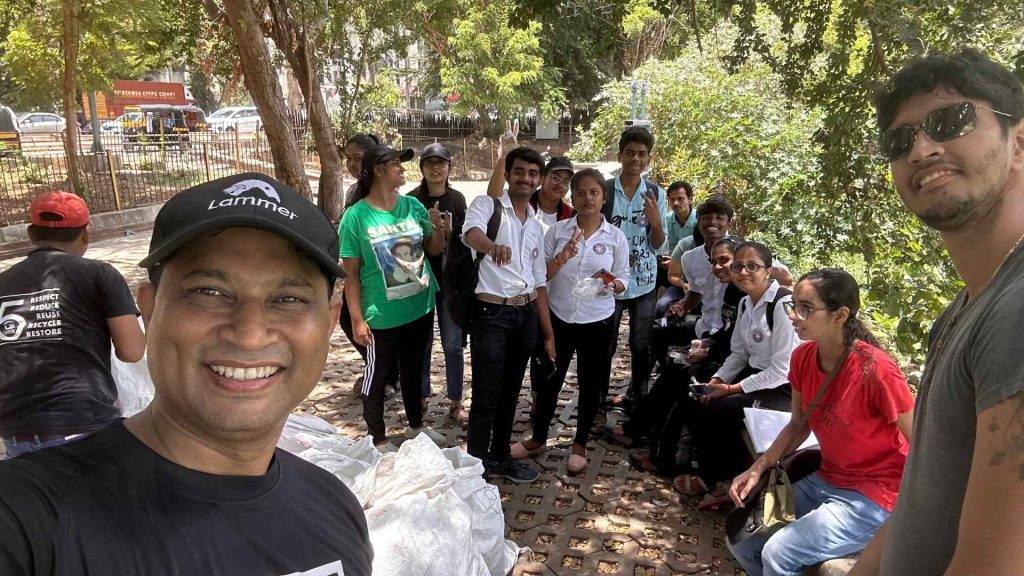
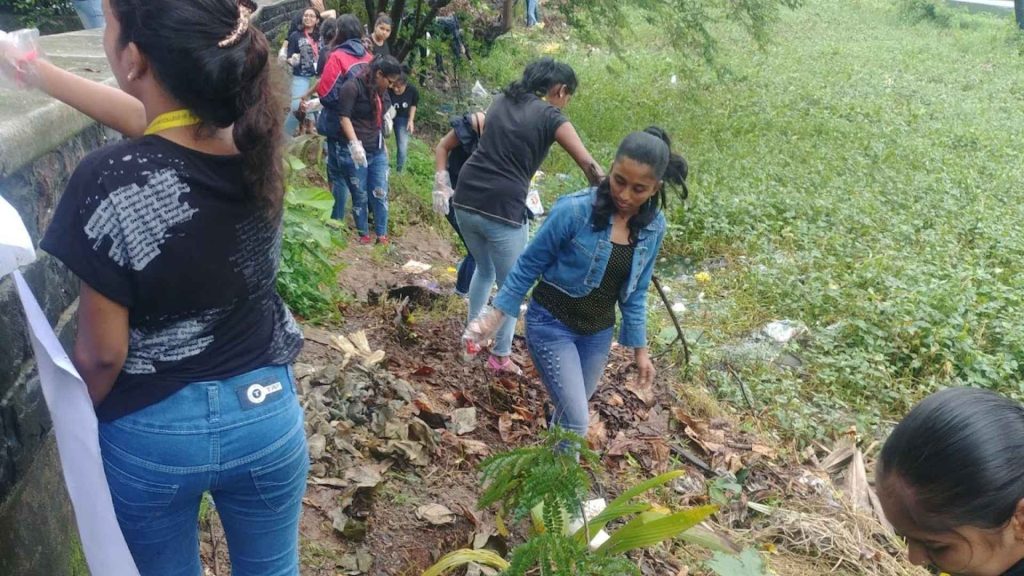
ESG KPIs: ENVIRONMENTAL, SOCIAL, AND ECONOMIC IMPACT
The Environmental Impact
- 112.32 tonnes of waste was removed, which prevented further pollution and restored the river ecosystem.
- 150.52 tonnes of Carbon Dioxide emissions were avoided which reduced the carbon footprint of landfill waste decomposition.
- Major improvements in water quality were recorded along with biodiversity restoration and reduced contamination by surrounding agricultural lands.
The Social Impact
- 24,960 volunteer hours contributed by local citizens, NGOs and corporate volunteers, reinforced collective action for sustainability.
- Active volunteers from different communities, including students, activists, and professionals, fostered a sense of ownership over local ecological issues. The participating firms harbored a sense of Corporate Social Responsibility (CSR) that further helped the cause.
- The initiative integrated creative activities such as football matches and community art programs, which made the river cleanup efforts more engaging and sustainable. This also promoted environmental awareness among residents of Pune.
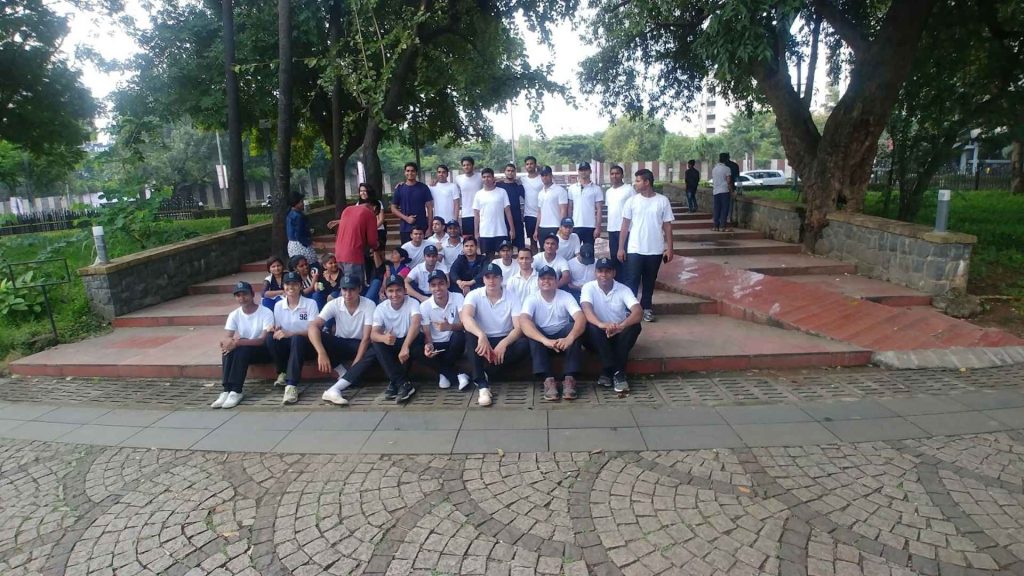
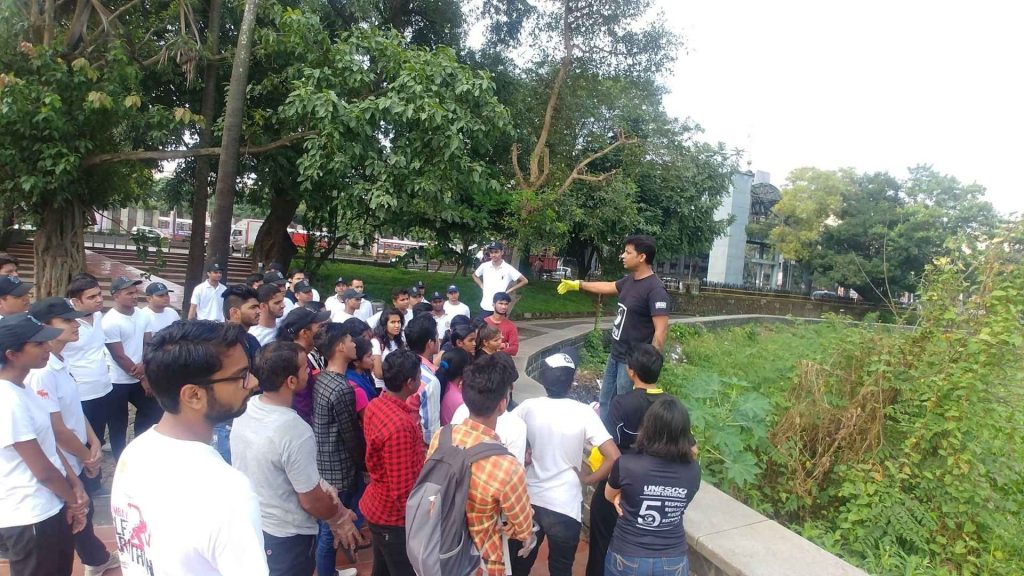
The Economic Impact
- Rs. 5.61 lakhs were generated via recycling which supported waste management workers. This further made the local recycling businesses more profitable while promoting circular economy practices.
- The initiative reduced municipal waste management costs by diverting thousands of kilograms of waste from landfills which resulted in a lower government expenditure on waste disposal.
- The program encouraged local businesses to undertake waste disposal practices and harbour a sense of Corporate Social Responsibility (CSR). This led to better compliance with environmental regulations of Pune.
Community and Cultural Adoption of the Program
- The project evolved into a grassroots movement, with 30 to 40 volunteers dedicatedly showing up each Sunday which demonstrated the power of sustained communal engagement.
- Over time, the locals began taking responsibility for waste management, which led to the shift from one-time cleanups to long-term environmental protection.
- The program’s success acts as a blueprint for other urban areas facing similar challenges. The initiative has proven that collective action, when combined with structured waste disposal and community participation, will lead to lasting ecological and social change.
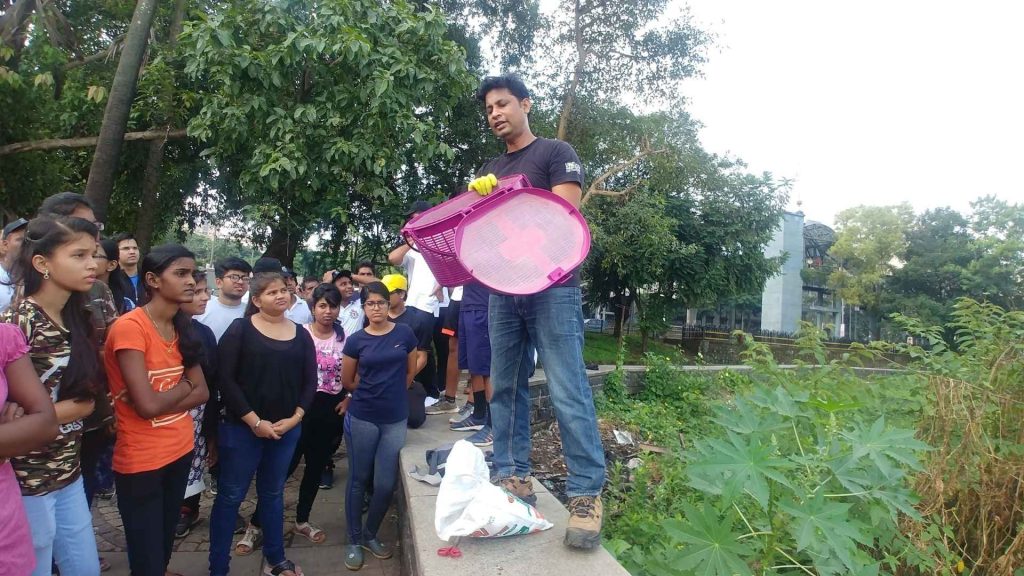
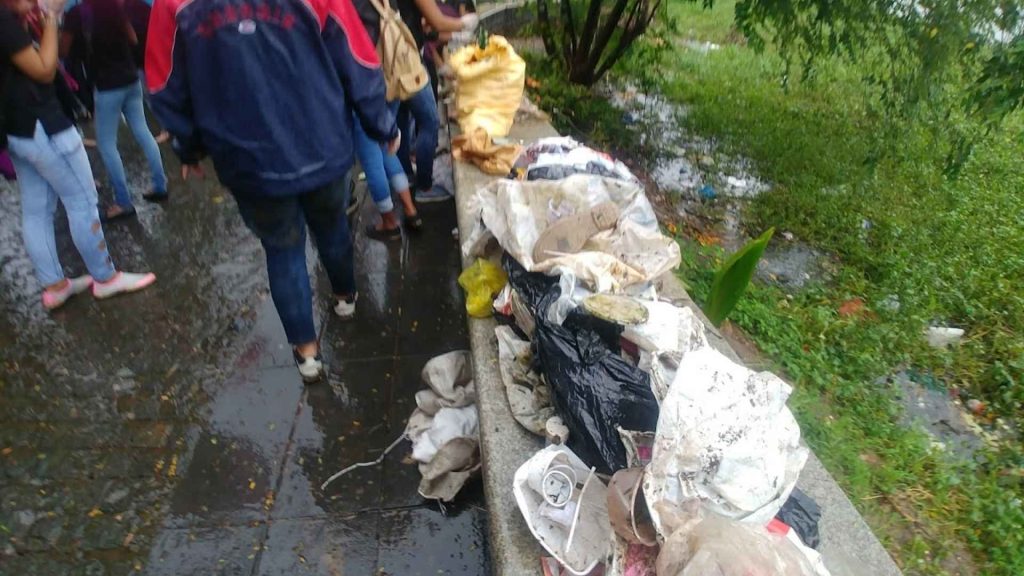
FUTURE PLANS: SCALING IMPACT BEYOND THE MULA MUTHA RIVER
The success of the Mula Mutha River cleanup initiative has proven that community-led environmental restoration can result in a lasting impact. Earth5R now plans to introduce this model across other polluted water bodies. The aim is to expand the initiative so that more cities can adopt structured waste management and environmental conservation efforts. By replicating this proven approach, local communities can take ownership of their natural resources and actively participate in sustainable practices.
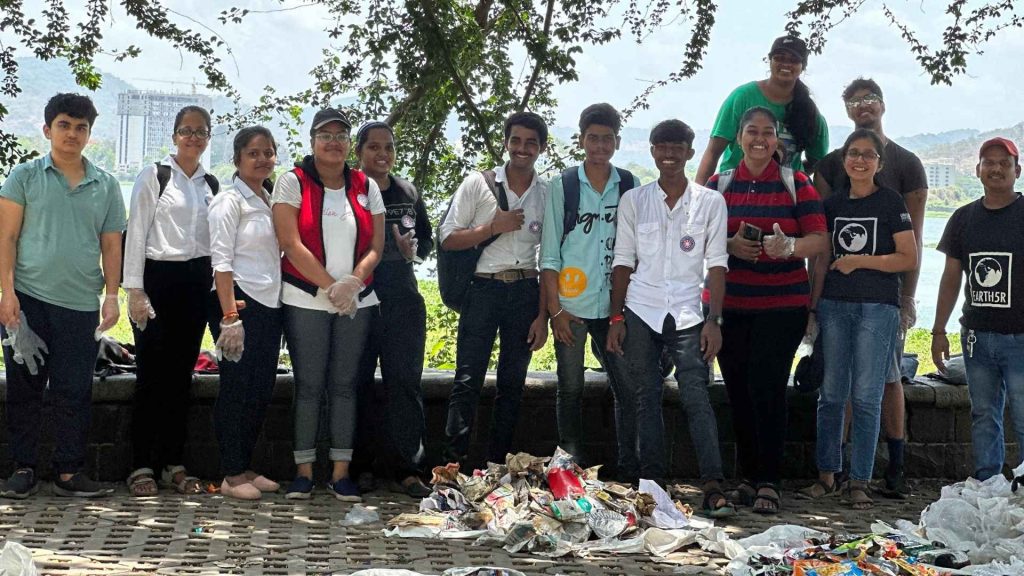
Future programs will combine waste recovery initiatives, environmental education, training, and circular economy principles. This process ensures that cleanup efforts lead to sustained change rather than temporary shifts. To make this plan work, Earth5R will collaborate with local municipal bodies, educational institutions, local NGOs and corporate ESG teams. These partnerships are expected to bring in more volunteers, drive policy-level changes and improve waste collection systems.
Technology is expected to play a key role in broadening the scope of this initiative. Earth5R’s data-driven platform will measure impact, track cleanup activities, and monitor community participation. Tools like geospatial mapping, artificial intelligence, and blockchain-backed waste tracking will enhance transparency and efficiency. This development will help in optimizing resources and providing real-time insights for decision-making.
Over the next 5 years, Earth5R aims to extend this model to at least fifty polluted rivers of India aside from Pune. If it reaches global platforms, it could help remove millions of tonnes of waste from water bodies, offset large amounts of Carbon dioxide, and improve the overall health of ecosystems and communities.
ABOUT EARTH5R: A GLOBAL ACTION PLATFORM FOR SUSTAINABILITY
Earth5R is an ESG and Corporate Social Responsibility (CSR) action platform that empowers businesses, communities, and governments to address environmental challenges. Instead of focusing solely on advocacy, Earth5R ensures measurable impact via on-ground programs and tech-led sustainability solutions.
The organization combines environmental conservation and economic development. Its programs address key issues such as carbon offsetting, waste management, sustainable livelihoods and afforestation.
Earth5R has already made a praiseworthy global impact. It has offset over 954,000 tons of carbon dioxide emissions, engaged 1.3 million citizens worldwide and planted 87,000 trees. These efforts have encouraged corporate partners, communities, and volunteers, to take collective action for sustainable development.
Earth5R is known for its award-winning technology platform. It allows individuals, businesses and policymakers to collaborate, scale sustainability efforts and track progress efficiently. The platform ensures smooth environmental reporting, real-time volunteer engagement and data-driven decision-making . This further ensures that each action taken contributes to a long-term ecological and social impact.
Earth5R has set a target to mobilize two billion people into the climate economy by 2030. The goal is to move beyond environmental awareness and create real, community-powered solutions. With its effective scalable approach, Earth5R is creating a future where environmental responsibility is a globally shared commitment
